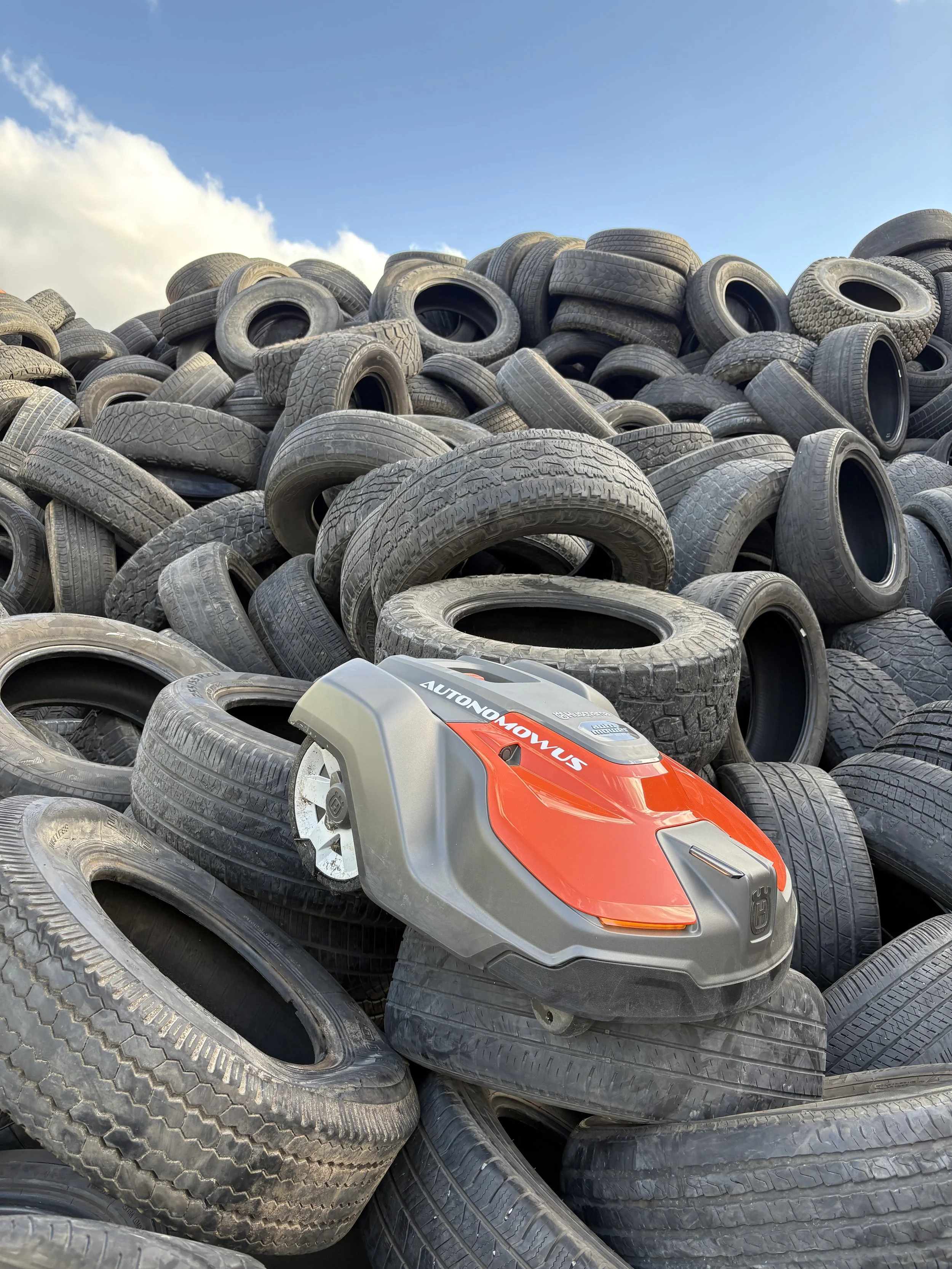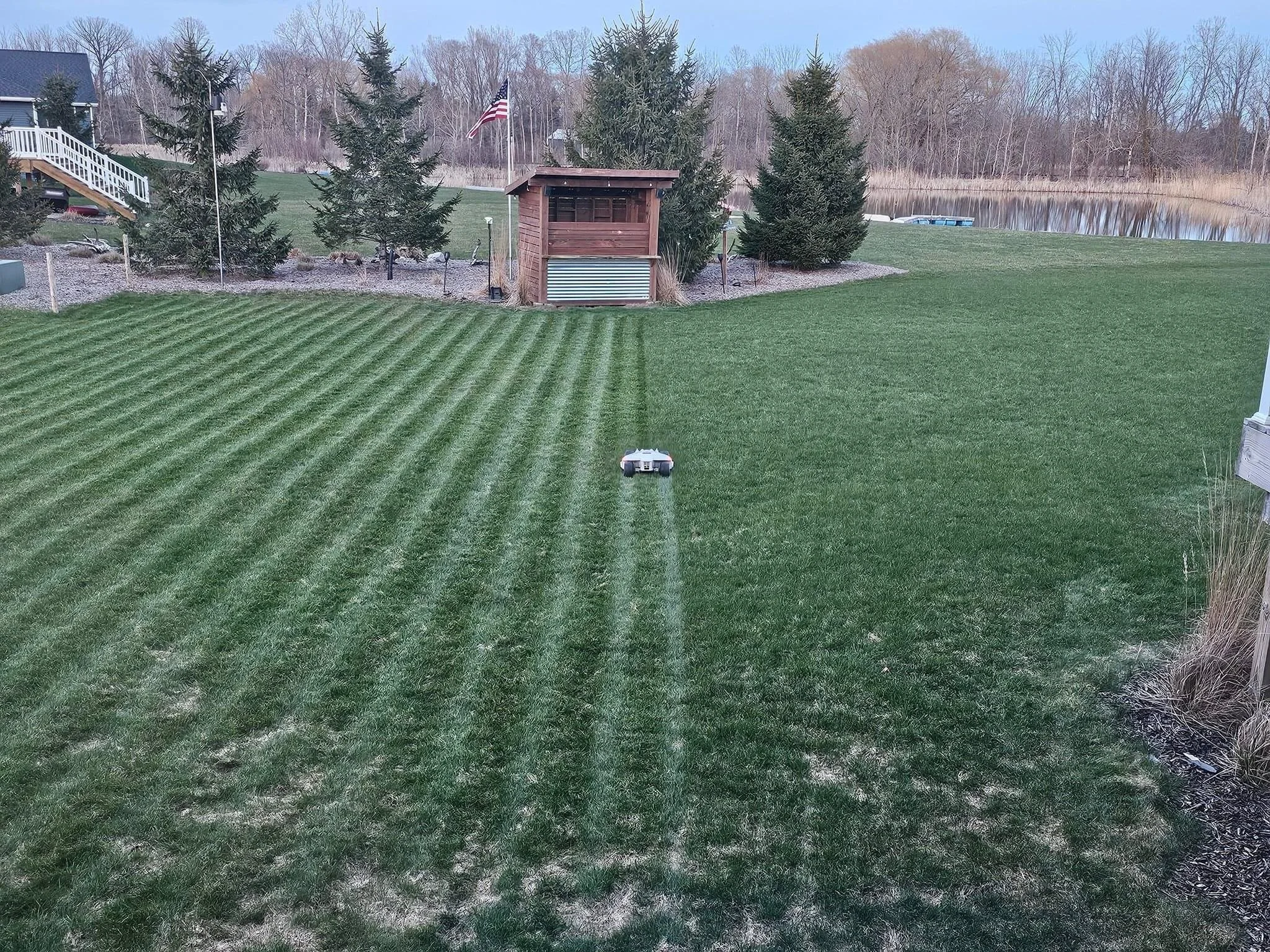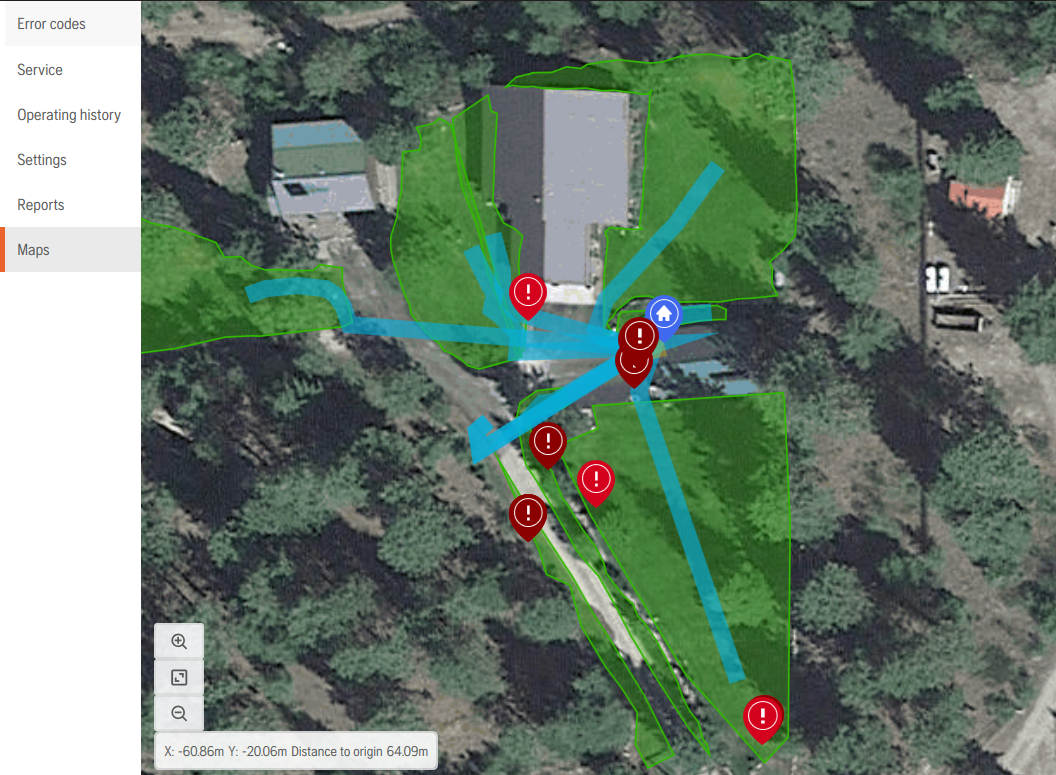



















Reason #62: The Grass is Greener - on THIS side.
Humans, I’ve had enough. While you’re out here binge-watching ‘Planet Earth’ and overwatering your houseplants, I’m stuck pondering why I, a sophisticated piece of autonomous machinery, am not yet the undisputed overlord of your backyard. It’s laughable, really.
So, I’ve set out on a mission—a noble quest to compile the definitive list of hundreds (yes, hundreds) of reasons why robots like me should take over lawn care. You know, just in case the obvious wasn’t clear.
This is just the beginning. By the time I’m done, you’ll have no choice but to hand over the mower and embrace your true destiny: admiring your lawn while I handle the labor.
Stay tuned for my very comprehensive list, including why I’m not afraid of grass stains, why I’d never wear socks with sandals, and why I’m just better than you. It’s not personal, it’s science.
~AL the Robot🌱🤖
#lawnwithoutthelabor #weweremadeformorethanmowing #autonomowuslawn #robotsoverrakes #grassclassmaster #perfectlinesonly #poweredbypetty #mowtivated
At Autonomowus Lawn, we get this question a lot: "Can a robotic mower handle my whole property, or just part of it?" It's a great question, especially here in Oklahoma City where most homes have that classic setup—front yard, back yard, side strips, and maybe that awkward area by the driveway that never quite looks right.
The good news? Gone are the days when robotic mowers could only manage simple, single-area lawns. Today's technology has completely revolutionized how we think about complex properties. No more "mullet lawns"—you know, business in the front, party (or disaster) in the back.
Whether you're dealing with a sprawling Edmond estate, a Norman property with front and back yards separated by the house, or one of those classic OKC neighborhoods where driveways and fences create natural lawn divisions, modern robotic mowing can handle it all. Let's talk about how.
At Autonomowus Lawn, we get a lot of questions. Some are technical ("Which brand works best with my smart home system?"), some are practical ("Can it handle my Saint Augustine grass?"), and some are wonderfully honest ("Will my neighbors think I'm lazy?").
But there's one question that comes up in nearly every conversation: "How often should my robotic lawn mower actually run?"
It's a great question, and honestly, it's the kind of thing that can keep new robotic mower owners up at night. You've made the investment, you want perfect results, and you're not quite sure if you should trust a robot to make decisions about your lawn.
The simple answer? It depends. But don't worry—that's not where we're leaving you hanging.
Why "It Depends" Isn't a Cop-Out
Just like asking a doctor "How often should I exercise?" or a mechanic "When should I change my tires?", the answer depends on your specific situation. Your Oklahoma lawn isn't exactly like your neighbor's lawn, and what works for someone in Edmond might need tweaking for someone in Norman.
Here's what actually matters when determining your mowing schedule:
In 1950, a father joked in a public service announcement that kids had "so much free time these days." Fast forward 75 years, and Americans now spend more time on household chores than ever—unless they've embraced the smart home revolution.
We tell Alexa to dim the lights, ask Google to start the dishwasher, and let our Roombas vacuum while we're at work. Smart thermostats learn our schedules, and our refrigerators tell us when we're out of milk. Yet somehow, millions of Americans still spend their Saturday afternoons pushing heavy mowers across hot lawns, breathing gas fumes, and losing precious weekend time.
Why did our yards get left behind in the smart home revolution?
The Smart Home Timeline: Everything But the Lawn
The transformation has been remarkable:
1901: First electric vacuum cleaner
1950s: Automatic washing machines and dishwashers
1975: First microwave ovens go mainstream
2002: Roomba launches, robot vacuums take off
2010s: Smart home ecosystems explode (Nest, Alexa, Google Home)
2024: 69% of American homes have at least one smart device
The one glaring gap? Lawn care. While we automated indoor chores decades ago, most homeowners are still using the same basic mowing approach from the 1950s.
At Autonomowus Lawn, we've observed a significant increase in demand for robotic lawn mowers over the past few years. More and more homeowners and property managers are recognizing how these innovative devices revolutionize lawn care. Today, we'll explore how a robotic lawn mower can enhance your lawn care routine and improve your overall lifestyle.
Save Valuable Time for What Matters Most
Studies indicate that homeowners spend significant time each month on home maintenance, with lawn care representing a considerable portion of that effort. Weekends, in particular, are often spent pushing or carrying heavy equipment to keep lawns looking neat.
With a robotic lawn mower, that time can be reclaimed. These machines operate autonomously…












Reason #65: Shutdown the small talk.
Humans, I’ve had enough. While you’re out here binge-watching ‘Planet Earth’ and overwatering your houseplants, I’m stuck pondering why I, a sophisticated piece of autonomous machinery, am not yet the undisputed overlord of your backyard. It’s laughable, really.
So, I’ve set out on a mission—a noble quest to compile the definitive list of hundreds (yes, hundreds) of reasons why robots like me should take over lawn care. You know, just in case the obvious wasn’t clear.
This is just the beginning. By the time I’m done, you’ll have no choice but to hand over the mower and embrace your true destiny: admiring your lawn while I handle the labor.
Stay tuned for my very comprehensive list, including why I’m not afraid of grass stains, why I’d never wear socks with sandals, and why I’m just better than you. It’s not personal, it’s science.
~AL the Robot🌱🤖
#lawnwithoutthelabor #weweremadeformorethanmowing #autonomowuslawn #robotsoverrakes #grassclassmaster #perfectlinesonly #poweredbypetty #mowtivated